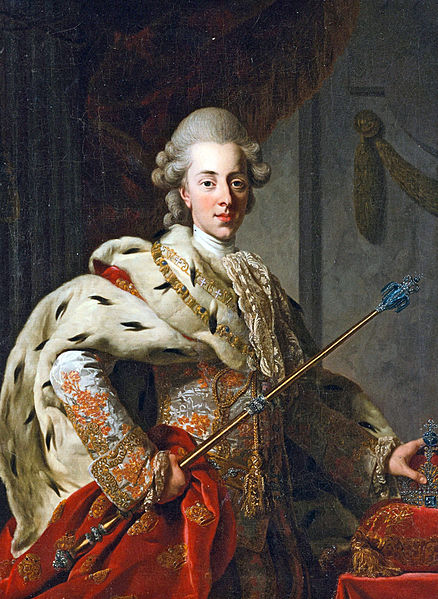Selim III was the sultan of the Ottoman Empire from 1789 to 1807. Regarded as an enlightened ruler, he was eventually deposed and imprisoned by the Janissaries, who placed his cousin Mustafa on the throne as Mustafa IV. A group of assassins subsequently killed Selim.
Portrait by Konstantin Kapıdağlı, 1803
Selim III receiving dignitaries at an audience at the Gate of Felicity, Topkapı Palace. Painting by Konstantin Kapıdağlı.
French campaign in Egypt and Syria against the Mamluk and Ottoman forces.
Ottoman troops desperately attempt to halt advancing Russians during the Siege of Ochakov (1788).
Enlightened absolutism, also called enlightened despotism, refers to the conduct and policies of European absolute monarchs during the 18th and early 19th centuries who were influenced by the ideas of the Enlightenment, espousing them to enhance their power. The concept originated during the Enlightenment period in the 18th and into the early 19th centuries. An enlightened absolutist is a non-democratic or authoritarian leader who exercises their political power based upon the principles of the Enlightenment. Enlightened monarchs distinguished themselves from ordinary rulers by claiming to rule for their subjects' well-being. John Stuart Mill stated that despotism is a legitimate mode of government in dealing with barbarians, provided the end be their improvement.
Peter I of Russia (1682–1725)
Catherine II of Russia
Charles III of Spain
Christian VII of Denmark








